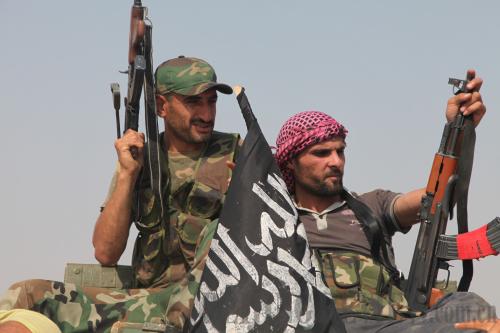|
 |
|
ARMED OPPOSITION: Syrian rebel fighters in a village near Aleppo on July 30 (XINHUA/AFP) |
If the situation in Syria were a storm, the country is now approaching the eye of the hurricane after 18 months of conflict. Intense fighting between government forces and rebels broke out in the country's second largest city Aleppo, and insurgent forces claimed the city will see a decisive battle to end the Bashar al-Assad administration.
Chinese political observers noted that the Syria issue has become more complicated with the involvement of Western countries and neighboring countries in the region. They believe the Syrian Government is capable of resisting the rebels longer than Western countries expect, and insist that Syria's peace should be made by Syrian people through communication and negotiation.
Assad still in control
The security situation in Syria is undoubtedly deteriorating. On July 18, four high-ranking security officers were killed in an explosion in Damascus, including Assad's brother-in-law. Moreover, hundreds of thousands of Syrians have become refugees after fleeing violence between government forces and insurgent groups in Damascus and Aleppo in late July. Meanwhile, Western countries and some countries in the Gulf publicly offered assistance to the rebels, heightening pressure on the Assad administration. As the Syrian Government stepped up its attacks on Aleppo, U.S. Defense Secretary Leon Panetta called for efforts to "bring the Syrian regime down."
Chinese analysts predicted that the Syrian Government, for the foreseeable future, remains strong enough to crush the well-armed insurgents. In their view, the battle over Aleppo won't be the end of fighting in Syria.
The opposition's forces are apparently equipped with better weaponry in the most recent battles in Aleppo than in gunfights in Damascus, but are still not able to compete with the government's firepower, said Liu Baolai, a former Chinese ambassador to several countries in the Middle East and a research fellow with the China Foundation for International Studies, in an interview with Beijing Review.
"The armed forces of the opposition are still weak, scattered and disunited. The war between the opposition and the government is essentially guerilla warfare," Liu said. For example, the opposition once occupied some areas of Damascus, but soon withdrew instead of stationing there, he explained.
| 